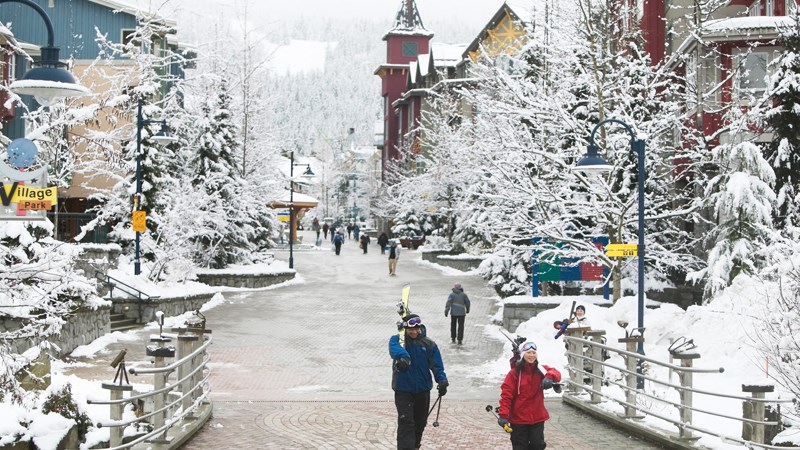Half a century after Whistler Mountain first opened, Whistler Blackcomb is undergoing a massive transformation.
Colorado-based Vail Resorts Inc., one of the world’s largest operators of ski destinations, bought B.C.’s biggest resort last year.
Whistler Blackcomb is now embarking on a $345 million plan to turn Whistler Blackcomb into a year-round, weather-independent destination for tourism and sport – an unprecedented investment proposal that, despite the resort’s status as the largest and most visited destination of its kind in North America, Whistler Blackcomb needs.
Up against climate change and what the competition has to offer, Ski magazine’s best resort three years running is readying itself for a future beyond fresh powder.
That includes a wide range of snowless competitive and recreational sports, such as biking and hiking, and plans for a huge water park.
“What people don’t realize is … the ongoing events that we have throughout the year that continually bring people here,” said Dave Brownlie, president and CEO of Whistler Blackcomb.
Such events include the World Ski & Snowboard Festival – which extends Whistler’s winter season to April – Canada Cup Series events in ski and snowboard slopestyle and Crankworx, which has brought some of the greatest mountain bike athletes to Whistler Blackcomb for more than a decade.
“Most resort destinations will have what I refer to as sort of a single bell curve,” said Barrett Fisher, president and CEO of Tourism Whistler. “You have a high season that is either typically in a summer season or a winter season. But Whistler is unique in that we have two bell curves for summer and winter, and in fact we’re seeing more and more those shoulder seasons – primarily on weekends in the spring and fall – filling in.”
Fisher said visitor numbers in July and August “are now matching our high-season winter months.”
She points to Tough Mudder, a series of hard-core obstacle races, whose audience has grown by 66 per cent between 2011 and 2016. The 2016 RBC GranFondo Whistler cycling event in September had 44 per cent more visits than it did in 2009, and since 2013, Ironman Canada has led to a 24 per cent rise in room nights over the course of the Whistler event.
According to the city, the municipality generates $1.5 billion in gross domestic product annually. It’s also responsible for a quarter of B.C.’s annual tourism export revenue, and about $1.37 million in tax revenue to three levels of government, every day


